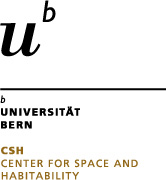Advanced statistical methods for physicists
Lecturer: Prof. Dr. Brice-Olivier Demory
ECTS: 4
Semester: FS 2025
Lectures: Fridays 10:15-12:00
Exercises (mandatory): Fridays 13:15-14:00
Room: B116 (Exakte Wissenschaften)
Description
This advanced course provides a detailed portfolio of techniques to perform model-based Bayesian statistics in (but not restricted to) experimental physics. The course intertwines formal mathematics with computational methods to facilitate the implementation of statistical models tailored to a specific problem. The course will start off with basic concepts on inference and probability theory. Single- and multi-variate linear models will then be discussed along with numerous real-life applications using the R language. Significant emphasis will be put on techniques to assess the adequacy of a model for a given dataset and to compare models between them. The course will then focus on multilevel analyses to identify the global properties of a population of entities. Importantly, the course will emphasise on the pitfalls of statistical modelling that stem from the experimental setup, including sample completeness, biases and sensitivity. Practical implementations of sampling techniques will be presented, including Markov chain Monte-Carlo and nested sampling. The course will finally touch upon non-linear models and the implementation of Gaussian processes and machine learning.
Learning outcome
The purpose of the course is to provide students with tools to apply Bayesian statistical methods in data analysis relevant to experimental physics. Students will become comfortable with Bayesian statistics, sampling techniques, multivariate and multilevel models. The course combines mathematics and coding (R language) for students to learn how to implement their models with sufficient theoretical background to make informed choices and reasonable interpretations. The course will enable students to conduct detailed data analyses of their experimental projects, assess the robustness of their results and identify their limitations. The techniques developed in this course could be applied to an infinite number of problems, including e.g. basic sciences, biology and data science in general. Examples in these domains will be provided to emphasise on the broad applicability of these methods.
